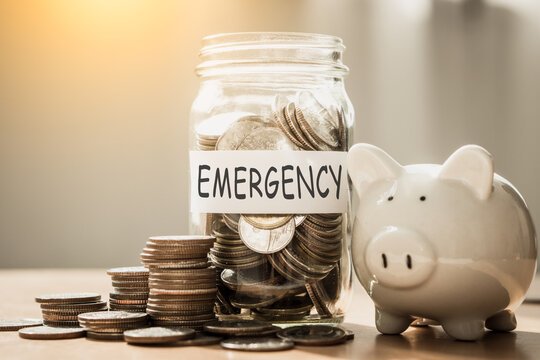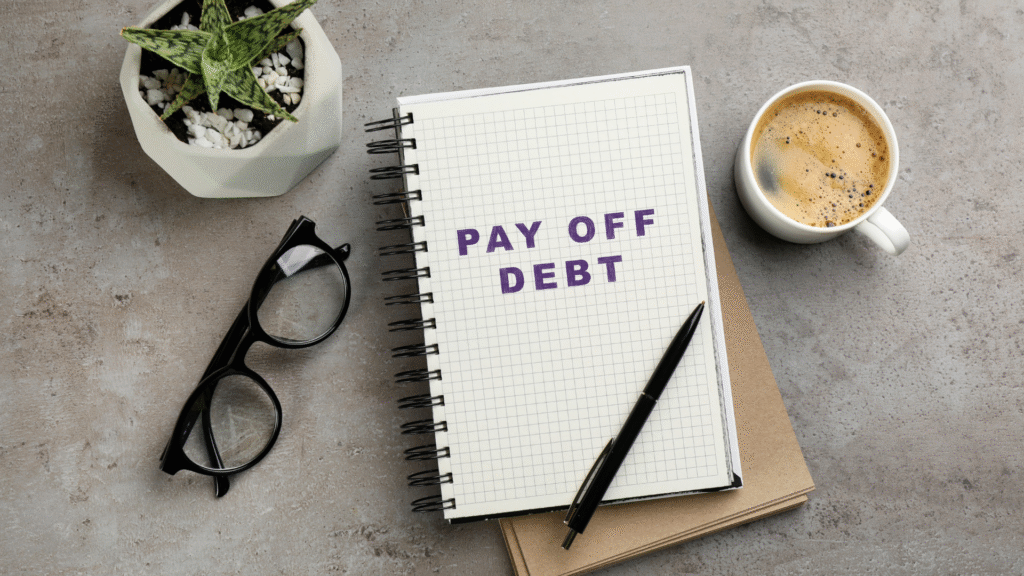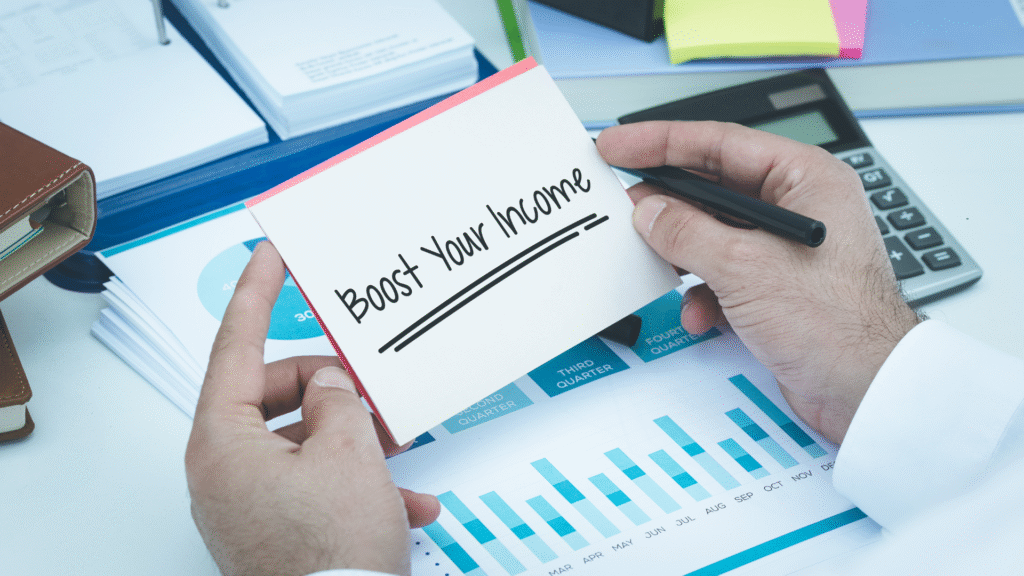
Managing your personal finances is essential in today’s unpredictable economy. Controlling your money reduces stress and builds lasting financial security. The best part? You don’t need a financial degree to start. Small, intentional steps can lead to big wins.
This guide shares simple and practical personal finance tips anyone can follow to spend smarter, save money, and create a budget that works.
Understand Where Your Money Goes

One of the first steps to improving your finances is knowing exactly where your money is going. Track your monthly income and expenses using a budgeting app like Mint or YNAB, or use a manual spreadsheet if you prefer. When you clearly see your spending habits, you can cut back on non-essentials like daily takeout or impulse purchases.
Tip: Try a no-spend challenge for one week. It helps reset your spending habits and brings awareness to unnecessary expenses.
Set Clear Financial Goals

Setting clear Personal finance goals gives your money a purpose. Without a plan, it’s easy to spend without thinking. Start by breaking your goals into three types:
- Short-term goals (within 3–6 months) could include building a $500 emergency fund, paying off a credit card, or saving for a weekend trip.
- Medium-term goals (1–3 years) might be buying a car, saving for a wedding, or starting a small business.
- Long-term goals (5+ years) often include retirement planning, buying a home, or building wealth.
Use the SMART goal-setting method: Specific, Measurable, Achievable, Relevant, and Time-bound. For example, instead of saying, “I want to save money,” say, “I will save $100 each month for 6 months.”
Build and Stick to a Budget

Creating a monthly budget is one of the most powerful things you can do for your personal finance. A budget shows exactly how much money you have coming in and going out. This helps you avoid overspending and plan for savings.
Pick a budgeting method that fits your lifestyle:
- The 50/30/20 rule is simple: 50% for needs, 30% for wants, 20% for savings or debt.
- A zero-based budget means you assign every dollar a job so nothing is wasted.
- The envelope system uses cash to help you manage spending categories like groceries or entertainment.
Use free tools like Mint, YNAB, or Google Sheets budget templates to stay on track.
Create an Emergency Fund

An emergency fund is money set aside for unexpected situations—like losing your job, car repairs, or medical bills. It gives you peace of mind and protects you from using credit cards or loans during tough times.
Start small. Even $10–20 saved weekly can grow over time. Set up automatic transfers to a separate savings account so you don’t accidentally spend it.
Aim to save at least 3 to 6 months’ worth of living expenses, but don’t worry if that feels overwhelming. Begin with a smaller goal, like $500, and build from there.
Stay consistent and treat it like a monthly bill—your future self will thank you.
Pay Down Debt Strategically

Getting out of debt gives you more control and reduces stress. The first step is to choose a strategy that fits your mindset. Two popular debt payoff methods are:
- Debt Snowball: Focus on paying the smallest debt first while making minimum payments on the rest. This gives you quick wins and motivation.
- Debt Avalanche: Pay off the highest-interest debt first. This saves more money long-term.
Pick the method that keeps you going. The key is consistency.
Try to make extra payments whenever you can—like putting tax refunds or bonuses toward debt. Avoid taking on new high-interest debt, especially from credit cards.
As your balances shrink, your credit score improves, and you free up money for savings or investments. Paying off debt is not just about money—it’s about gaining freedom and building long-term financial stability.
Automate Your Savings and Bills
Automating your savings and bill payments is one of the easiest ways to stay on top of your personal finances. Set up automatic transfers to your savings account right after each paycheck arrives. This helps you “pay yourself first,” meaning you treat your savings like a required bill instead of an afterthought.
Automation removes temptation and keeps you consistent. It also protects you from late fees and missed payments that could damage your credit score. Set up autopay for recurring bills like utilities, rent, subscriptions, and loans to stay stress-free.
Most banks and budgeting apps allow you to schedule transfers and payments with just a few clicks. Choose a specific day each month and let the system do the rest.
Start Investing Early

The earlier you start investing, the more your money can grow over time thanks to compound interest. For example, if you invest $100 per month starting at age 25, you could end up with over $200,000 by retirement—without doing anything extra. Time is your greatest asset.
Begin with low-cost index funds or ETFs (Exchange Traded Funds), which offer broad market exposure with minimal fees. These are perfect for beginners and don’t require deep stock-picking knowledge.
Use platforms like Roth IRAs, 401(k)s, or investing apps like Robinhood, Fidelity, or Acorns to start. These accounts also offer tax advantages, helping you grow your wealth faster. Investing early is a key step in long-term wealth building and financial independence.
Boost Your Income

If saving more feels hard, try focusing on increasing your income. A higher income gives you more money to save, invest, and enjoy life without stressing about every expense. Start with a side hustle—freelancing, online tutoring, or starting an Etsy shop are all great ways to earn extra money in your free time.
Don’t overlook your current job. If you’ve been performing well, consider asking for a raise or promotion. Prepare your case by showing your contributions and how you’ve added value.
Another quick way to earn cash is by selling unused items from your home. Clothes, electronics, furniture, and old gadgets can be listed on Facebook Marketplace, eBay, or local selling groups.
Even small boosts in income—$100 to $300 per month—can go directly into savings or help pay off debt faster. More income gives you flexibility and speeds up your financial goals.
Educate Yourself Continuously
Financial knowledge is one of the most powerful tools you can have. The more you learn, the better decisions you’ll make with your money. Start by reading personal finance blogs, watching YouTube channels like The Budget Mom or Graham Stephan, or listening to personal finance podcasts like The Dave Ramsey Show or Her First $100K.
If you prefer books, try beginner-friendly personal finance reads like I Will Teach You to Be Rich by Ramit Sethi or The Simple Path to Wealth by JL Collins. These break down saving, investing, budgeting, and mindset into clear, actionable steps.
You can also join online communities like Reddit’s r/personal finance or Facebook groups focused on budgeting and financial independence. These spaces are great for asking questions, getting real-world personal finance tips, and staying motivated.
Continuous learning turns confusing money topics into manageable, empowering skills. Personal finance literacy is a lifelong journey—but starting now will pay off forever.
Conclusion
Taking control of your personal finances doesn’t require perfection—it starts with one small step. Whether it’s setting a budget, saving $10 a week, or reading your first finance book, action creates progress. Be consistent, stay curious, and remember: the earlier you begin, the stronger your financial future becomes. Start today and build momentum one habit at a time.
FAQs
What is the best way to improve your credit score quickly?
To boost your credit score fast, pay down credit card balances and make all payments on time. Keep your credit usage under 30% and check your credit report for errors. Fixing any mistakes can give your score a quick lift.
How much of my paycheck should I save each month?
A good rule of thumb is to save at least 20% of your monthly paycheck. This follows the popular 50/30/20 budgeting method—50% for needs, 30% for wants, and 20% for savings or debt repayment. Adjust based on your goals, income, and living expenses.
What are sinking funds and how can they help with budgeting?
Sinking funds are savings set aside for specific future expenses like car repairs, holidays, or annual bills. By contributing small amounts regularly, you avoid financial strain when those costs arise. They make budgeting easier by preventing surprise expenses from disrupting your monthly budget.
How can I teach my kids about personal finance?
Start by teaching them the value of money through everyday activities like saving allowance or budgeting for a toy. Use age-appropriate lessons about spending, saving, and needs vs. wants. As they grow, introduce topics like bank accounts, earning interest, and goal-setting to build strong financial habits.
